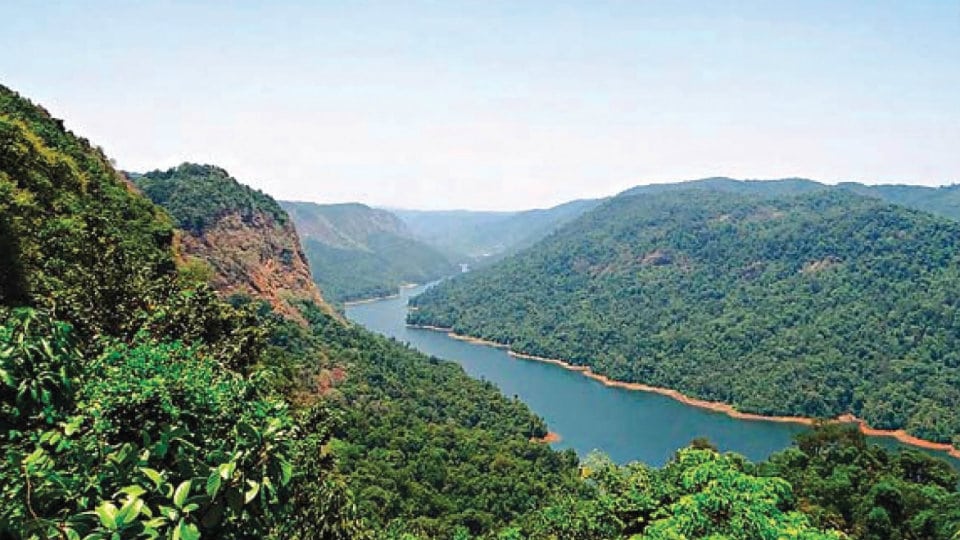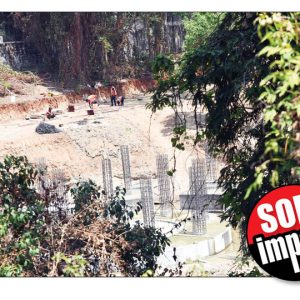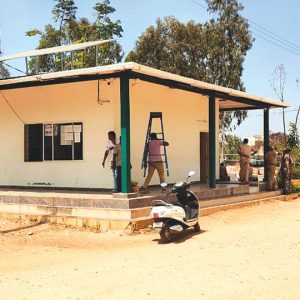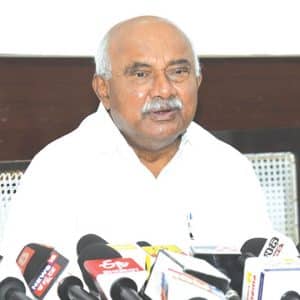Bengaluru: Eleven districts that harbour forests of the Western Ghats from Chamarajanagar to Belagavi including Kodagu, Hassan, Shivamogga and Dharwad should get special status on the lines of Article 371(J) for Hyderabad-Karnataka. This recommendation has been made by Western Ghats Task Force in its final report submitted to the State government yesterday. The report was submitted to Forest Minister Satish Jarkiholi.
Committee Chairman Dr. Chandrashekhar suggested the State Government to declare entire Western Ghat region as a Special Zone and take measures to protect its fauna and flora. It may be recalled here that the Dr. K. Kasturirangan Committee and Madhav Gadgil Committee on Western Ghats had also recommended the Union Government to declare Western Ghats as the Ecological Sensitive Region and take measures to protect it.
Speaking after submitting his report to the Minister, Dr. S. Chandrashekhar addressing a press conference said that the Committee, which had toured the Western Ghats region extensively, also suggested not to take up any more projects of diverting west-flowing rivers to dried areas as it would damage the natural landscape which was conferred World Heritage tag by UNESCO recently.
The Committee has recommended constituting “Western Ghats Development Authority” and banning movement of all types of heavy-vehicles in the region”.
It has also recommended to establish an ‘Environment and Forest University’ at Kudremukh, as it would help to conduct research and study to protect, conserve and develop the Western Ghats region.
The report recommended a tree census in the entire Western Ghats region with localisation of data to bring in accountability at zonal, divisional and circle offices. “Regulating the production and use of chainsaws is necessary to check the felling of the trees. Each tree fall should carry an explanation,” the report said.
The Committee, which has identified 20 rivers and 180 streams flowing in the Western Ghats areas, has also recommended to the State Government to ensure flow of water throughout the year. The report recommends 33 points of action for the conservation. This includes special status that would guarantee reservations in education and employment for those residing close to forests.
“This would increase employment opportunities for tribals and forest dwellers in cities outside forests. The development pressure on the forests would subsequently decrease,” said Chandrashekar.
Among the recommendations is to prohibit new projects in the Western Ghats. Currently, the State and Centre are planning a slew of road, railway, power, and river-diversion projects in the forests of the Ghats.
The report recommends the regulation of heavy earthmovers and machinery through permits and mandatory installation of GPS, revision of the sand mining policy to exclude areas in the Western Ghats, conservation of sacred groves, development of an eco-tourism policy, and establishment of elephant corridors, among others.
Forest Minister Satish Jarkiholi said the recommendations would be studied before implementation. “On the issue of special status, it will have to get the consent of the Chief Minister and the State Cabinet before it can reach the Centre,” he said.








Recent Comments